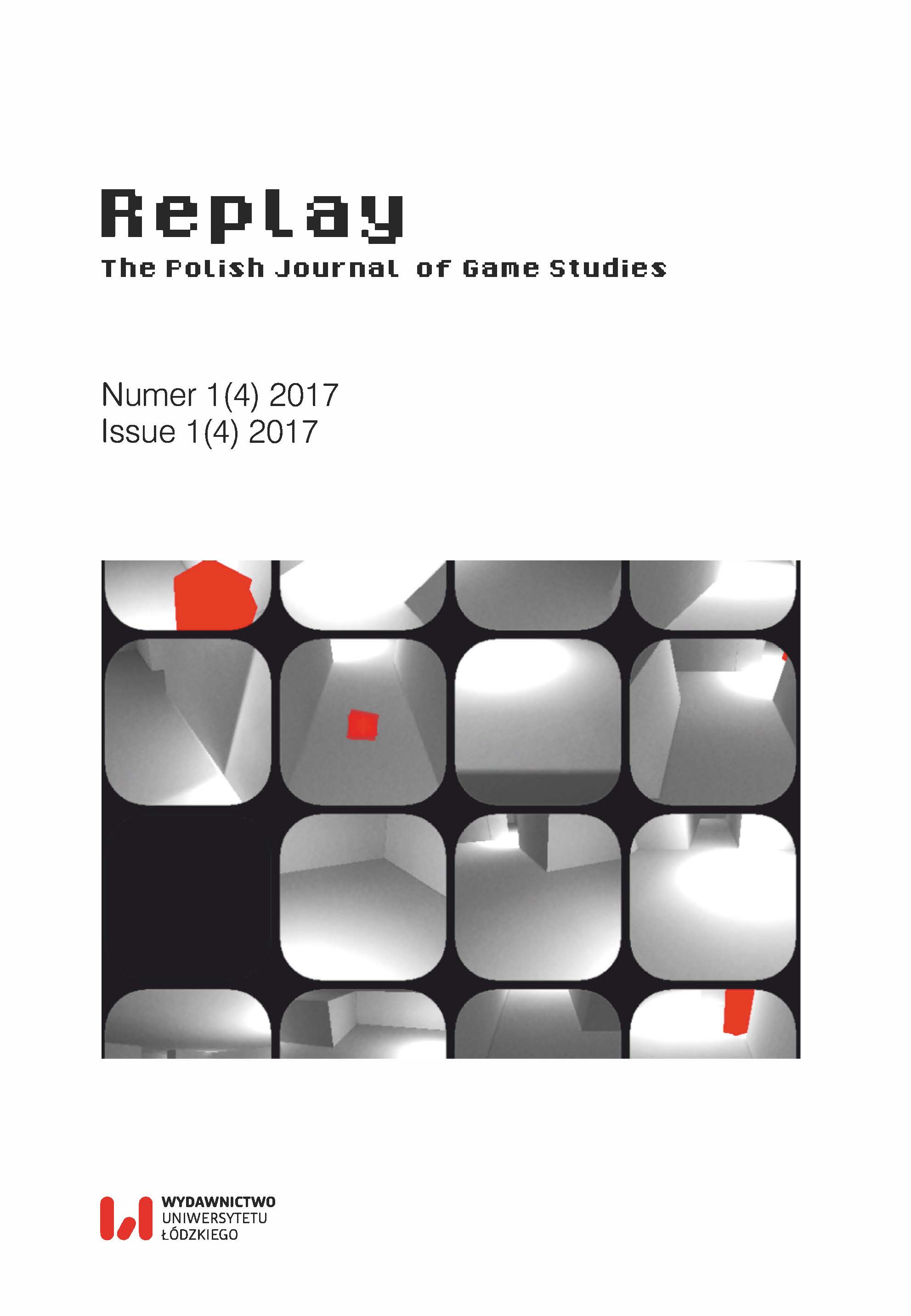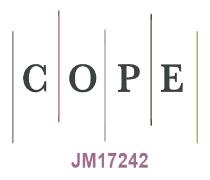Live Streaming Platforms and the Critical Discourse About Video Games
DOI:
https://doi.org/10.18778/2391-8551.04.02Keywords:
streaming platforms, paratexts, frames, critical discourseAbstract
This work concerns online streaming platforms centered on broadcasting video games-related content, such as Twitch.tv and Douyu.com. The aim of this article is two-fold: first, to point out the possible research methods regarding online streaming services as mediums for video game criticism, and second, to assess the potential of these platforms for generating critical discourse about video games. The methodology of the research is based on Mia Consalvo’s take on paratextual frameworks and Veli-Matti Karhulahti’s notions of interview and play frames regarding the activity of video games streaming. In this article, the initial characterization of Twitch.tv and Douyu.com is followed by an analysis on how the work of streamers as content creators can influence the reception of video games. Afterwards, a reading of analyzed phenomena based on paratextual framework is proposed. The last section juxtaposes the initial findings with the perspective of changing viewership figures in relation to selected ludic properties of games. In conclusion, it is stated that the analyzed streaming platforms reflect the proliferating crowdsource trends in the video game industry, with forms of interacting with the product at various stages of its development cycle establishing new practices of talking in and about video games.
References
Anderson, S.L. (2017). Watching People is Not a Game: Interactive Online Corporeality, Twitch.tv and Videogame Streams. Game Studies, vol. 17, issue 1.
Google Scholar
Berglund, A., Magnusson, F., & Stöckel, F. (2015). Investigating crossmedia branding strategies in online game streaming: A qualitative journey into the hearts and minds of todays arising online entertainers. Institutionen för informatic, Umea University.
Google Scholar
Bogost, I. (2009). You Played That? Game Studies Meets Game Criticism. Panel Discussion Paper, DiGRA 2009.
Google Scholar
Chun, W.H.K. (2011). Programmed Visions. Software and Memory. MA: MIT Press.
Google Scholar
DOI: https://doi.org/10.7551/mitpress/9780262015424.001.0001
Consalvo, M. (2007). Cheating: Gaining Advantage in Videogames. Cambridge, MA: The MIT Press.
Google Scholar
DOI: https://doi.org/10.7551/mitpress/1802.001.0001
Consalvo, M. (2017). Player one, playing with others virtually: What’s next in game and player studies. Critical Studies in Media Communication, 34(1): 84–87.
Google Scholar
DOI: https://doi.org/10.1080/15295036.2016.1266682
Deterding, S. (2017). The Pyrrhic Victory of Game Studies. Assessing the Past, Present, and Future of Interdisciplinary Game Research. Games and Culture, vol. 12, issue 6.
Google Scholar
DOI: https://doi.org/10.1177/1555412016665067
Fargo, B. (2017). Interview with the Codex about Torment: Tides of Numenera. Retrieved from http://www.rpgcodex.net/content.php?id=10604
Google Scholar
Ford, D. (2016). “eXplore, eXpand, eXploit, eXterminate”: Affective Writing of Postcolonial History and Education in Civilization V. Game Studies, vol. 16, issue 2.
Google Scholar
Gros, D., Wanner, B., Hackenholt, A., Zawadzki, P. & Knautz, K. (2017). World of Streaming. Motivation and Gratification on Twitch. In: Proceedings of Social Computing and Social Media. Human Behavior: 9th International Conference, Part I. Vancouver, Canada, pp. 44–57.
Google Scholar
DOI: https://doi.org/10.1007/978-3-319-58559-8_5
Gandolfi, E. (2016). To watch or to play, it is in the game: The game culture on Twitch.tv among performers, plays and audiences. Journal of Gaming & Virtual Worlds, 8(1): 63–82.
Google Scholar
DOI: https://doi.org/10.1386/jgvw.8.1.63_1
Ghys, T. (2012). Technology Trees: Freedom and Determinism in Historical Strategy Games. Game Studies, vol. 12, issue 1.
Google Scholar
Gray, J. (2010). Show Sold Separately. Promos, Spoilers, and Other Media Paratexts. New York and London: NY University Press.
Google Scholar
Hamilton, W.A., Garretson, O., Kerne, A. (2014). Streaming on Twitch: Fostering Participatory Communities of Play within Live Mixed Media. Paper presented during CHI 2014 Conference, Ontario, Canada.
Google Scholar
DOI: https://doi.org/10.1145/2556288.2557048
Howarth, D. (2000). Discourse. Philadelphia: Open University Press, Buskingham.
Google Scholar
Jenkins, H., Ford, S., & Green, J. (2013). Spreadable Media: Creating Value and Meaning in a Networked Culture. New York: NY University Press.
Google Scholar
Jungar, E. (2016). Streaming Video Games: Copyright Infringement or Protected Speech? Press Start, vol. 3, issue 2.
Google Scholar
Juul, J. (2009). A Casual Revolution. Reinventing Video Games and their Players. Cambridge, Mass.: MIT Press.
Google Scholar
Karhulahti, V.-M. (2016). Prank, Troll, Gross and Gore: Performance Issues in Esport Live-Streaming. Proceedings of 1st International Joint Conference of DiGRA and FDG. Available online at: http://www.digra.org/wp-content/uploads/digital-library/paper_110.compressed.pdf
Google Scholar
Lu, Z., Xia, H., Heo, S., & Wigdor, D. (2017). You Watch, You Give, and You Engage: A Study of Live Streaming Practices in China. Paper presented during The ACM 2018 CHI Conference on Human Factors in Computing Systems, At Montréal, Canada.
Google Scholar
DOI: https://doi.org/10.1145/3173574.3174040
Mu Hu, Mingli Zhang, Yu Wangon (2017). Why do audiences choose to keep watching on live video streaming platforms? An explanation of dual identification framework. Computers in Human Behavior, vol. 75: 594–606.
Google Scholar
DOI: https://doi.org/10.1016/j.chb.2017.06.006
Paul, Ch. A. (2011). Optimizing Play: How Theorycraft Changes Gameplay and Design. Game Studies, vol. 11, issue 2.
Google Scholar
Recktenwald, D. (2017a). Analizing the Discourse on Twitch. Extended Abstract Presented at Chinese DiGRA 2017.
Google Scholar
Recktenwald, D. (2017b). Toward a transcription and analysis of live streaming on Twitch. Journal of Pragmatics, vol. 115: 68–81.
Google Scholar
DOI: https://doi.org/10.1016/j.pragma.2017.01.013
Švelch, J. (2015). Towards a typology of video game trailers: Between the ludic and the cinematic. Game. The Italian Journal of Game Studies, vol. 4.
Google Scholar
Zhu, Z., Yang, Z., Dai, Y. (2017), Understanding the Gift-Sending Interaction on Live- Streaming Video Websites. In: Meiselwitz G. (Eds.), Social Computing and Social Media. Human Behavior. SCSM 2017. Lecture Notes in Computer Science, vol. 10282.
Google Scholar
DOI: https://doi.org/10.1007/978-3-319-58559-8_23
Firaxis Games (2016). Sid Meier’s Civilization VI [PC]. USA: 2k Games.
Google Scholar
Simtex (1993). Master of Orion [PC]. USA: MicroProse.
Google Scholar
Grinding Gear Games (2013- ). Path of Exile [PC]. New Zeland: Grinding Gear Games.
Google Scholar
Downloads
Published
How to Cite
Issue
Section
License

This work is licensed under a Creative Commons Attribution-NonCommercial-NoDerivatives 4.0 International License.










